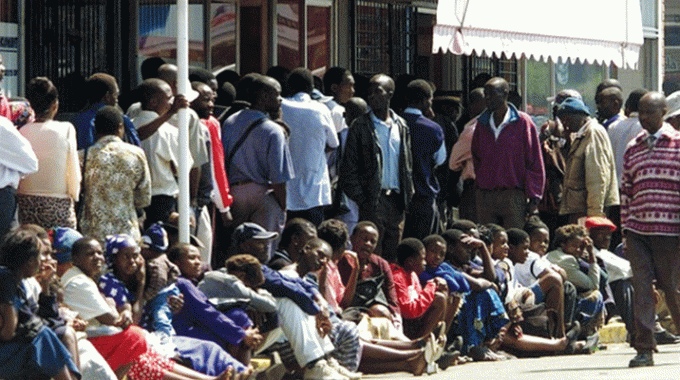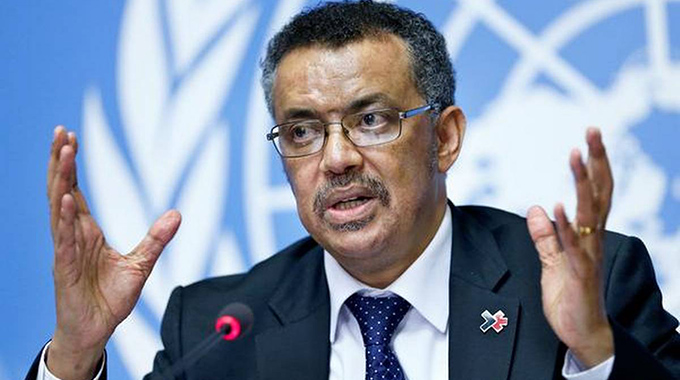MOST Zimbabweans no longer wearing masks in public places

Muchaneta Chimuka
MOST Zimbabweans seem to have stopped wearing face masks which protect them and others from the spread of Covid-19.
A survey by The Herald revealed that the majority of people only wear masks at the work place due to strict measures imposed by companies, but when they return to their communities they don’t wear them at all.
When they do, the face mask is sometimes worn incorrectly.
Under the new law announced by the Government of Zimbabwe wearing of masks is now a legal requirement in the wake of Covid-19.
Anyone found defying this directive will be fined $500 or imprisonment of up to one year.
However, most people only complied during the first weeks as police arrested offenders.
But now, wearing face masks is becoming lesser and lesser especially in high density suburbs.
In most rural areas people believe masks are for urban dwellers.
Information gaps and sometimes ignorance compound the situation.
Harare resident Joseph Chikovo, said some people no longer wear masks as they believe the virus will not affect them.
“I think there are information gaps in societies in as far as wearing face masks. This is a result of societal attitudes, ignorance, lack of proper mediums that convey Covid-19 messages to their, geographical set up, the cost of newspapers in Zimbabwe among other things. Our societies need some sort of force exerted to ensure compliance,” he said.
Mr Chikovo expressed worry over non- compliance at some churches, especially the apostolic sects.
Overcrowding, he noted, is a big issue despite the government’s stipulated figure of 50 people per gathering.
“We currently have over 600 cases of Covid-19 in Zimbabwe and very soon will reach a thousand if people are not careful. It’s high time every citizen takes precautionary measures to curb further spread.
“Wearing of a mask is the simplest thing ever. Government allowed people to wear homemade ones. People should not be embarrassed to wear them,” he added.
Mr Tonderai Mashona (45) of Chitungwiza, said Zimbabweans should learn from other countries’ experiences taking into consideration that the virus did not originate here.
“Why should people believe in hearsay? Rumours are still circulating at different gatherings like buses, at funerals, beer halls. Some self- proclaimed professors’ say that Covid-19 is not real in Zimbabwe. They claim it is a project of trying to make money by those in the health sector, which is false.
“Some even claim that taking some home-made concoctions such as aloe, zumbani, baboon urine among other things will make them immune from the deadly virus,” he said.
He pointed out that it is sad that some people believe that black skinned people will not get Covid-19.
“All measures that government announced to protect public health should be taken seriously. This includes hand washing, wearing masks, social distancing among others,” he said.
Olivia Mazinyani (39) of Chief Bota village in Zaka said she has never worn a face mask.
She rarely leaves her home for busy places like shopping centres.
“In our community some people make fun of those who wear masks. I never bought one but just heard through the radio that people in Harare were being arrested for not wearing them. In rural areas our communities believe the virus is only found in urban areas where most statistics are coming from. We believe that we are free from it,” she said.
Cecelia Nyandoro (25) of Zengeza 5 said she wears a mask, but her existing health condition scares her.
She is hypertensive and fears breathing difficulties if she wears one.
“I just wear face masks because I know that my condition puts me at high risk of getting Covid-19. Sometimes I remove the mask when I feel uncomfortable. I think there is need for specialised masks for people with breathing problems,” she suggested.
In her community, some people only wear masks for the sake of boarding public transport, or when they want to enter into a shop since it’s a requirement.
This clearly shows that complacency among Zimbabweans could soon be the biggest challenge in the fight against the Covid-19 pandemic.
Chief Co-ordinator of the National Response to Covid-19 in the Office of the President and Cabinet, Dr Agnes Mahomva, said people should take all precautionary measures such as wearing of face masks, avoiding crowded places, washing hands with soap under clean water running water as well as visiting health facilities when they feel unwell.
The severity of Covid-19 symptoms can range from very mild to severe.
Some people may have only a few symptoms, while others present no symptoms at all.
People who are older or have existing chronic medical conditions, such as heart disease, lung disease, diabetes, severe obesity, chronic kidney or liver disease, or who have compromised immune systems may be at higher risk of serious illness.
This is similar to what is seen with other respiratory illnesses, such as influenza.
Sign and symptoms of covid-19 include difficulties in breathing, persistent chest pain or pressure, inability to stay awake, confusion, blue lips or face.
The virus spreads by respiratory droplets released when someone with the virus coughs, sneezes or talks. These droplets can be inhaled or land in the mouth or nose of a person nearby.









Comments